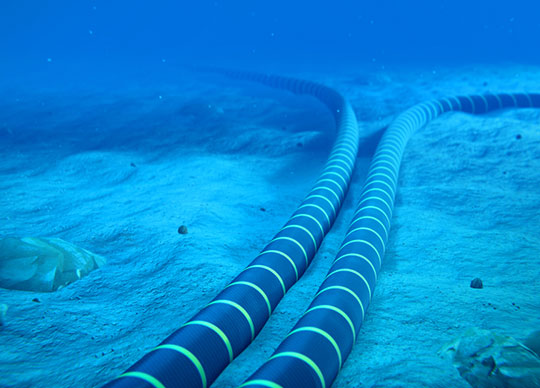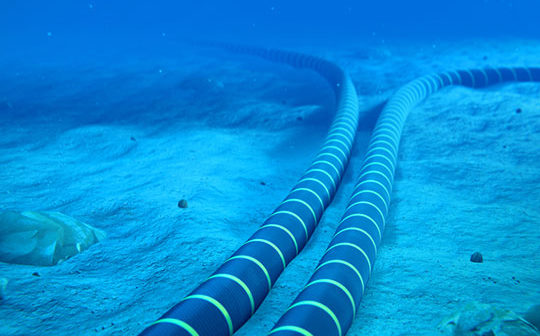
Staff Writer
The Australian Federal Police (AFP) has charged the Master of a container ship that damaged an underwater fibre-optic telecommunications cable off the coast of Perth earlier this month.
A 59-year-old Ukrainian national, the Master of Maersk Surabaya, a 94,322-tonne vessel sailing under the Liberian flag, was charged earlier this month.
In what is believed to be the first prosecution by the AFP for the alleged offence, the AFP charged the Master with a single count of engaging in negligent conduct as the Master of a maritime vessel, which resulted in damage to the Australian Singapore Cable, contrary to section 37 of Schedule 3A of the Telecommunications Act 1997 (Cth).
It is alleged on August 1, high winds caused the Maersk Surabaya to drag its anchor approximately 500 metres into the Perth Submarine Cable Protection Zone. The anchor subsequently snagged and damaged the Australia Singapore Cable (ASC).
“The protection zone is clearly marked on maritime charts, and all vessel Masters should ensure vessels operate in a manner which does not interfere with critical communications infrastructure,” said AFP Detective Superintendent Graeme Marshall.
According to the AFP, the incident occurred approximately 10 kilometres off Perth’s City Beach. The agency says the cable was cut, costing $1.5 million and taking over a week to repair.
The 4,600km submarine cable system linking Perth, Western Australia, to Singapore, via Indonesia was completed in 2018. Melbourne-based Vocus Communications wholly owns the ASC.
The telecommunications cable was five years in the planning and took a further two years to lay. The ASC cost Vocus $237.5 million to construct. It is Australia’s fastest fibre-optic connection into Asia.
The system comprises four fibre pairs providing different connection points between Perth and Singapore. The Singapore-to-Indonesia connection has a capacity of up to 44Tbps. The Perth-to-Indonesia connection has a capacity of up to 33Tbps.
Maersk Surabaya’s anchor cut the cable at a depth of approximately 27 metres. While Vocus temporarily rerouted IP services and traffic via Australia’s east coast and Hong Kong, adverse weather conditions slowed repairs.
The final splicing of the damaged ASC occurred on August 13, with normal services resuming on the same day.
A Vocus spokesperson told MySecurityMedia damaged cable sections were retained during the repair process and provided to the AFP as evidence.
“Vocus is currently conducting a detailed assessment of the total costs incurred due to the cut,” the spokesperson said. “Given the cut occurred in a cable protection zone Vocus contacted the relevant law enforcement authority, the Australian Federal Police, to investigate. ”
Vocus Communications reported the incident to the AFP on August 3. When the Maersk Surabaya later docked in Melbourne, investigators boarded the ship and seized logbooks. The vessel’s Master was subsequently charged and first appeared in Melbourne Magistrates Court on August 11. The man remains in Melbourne on bail.





